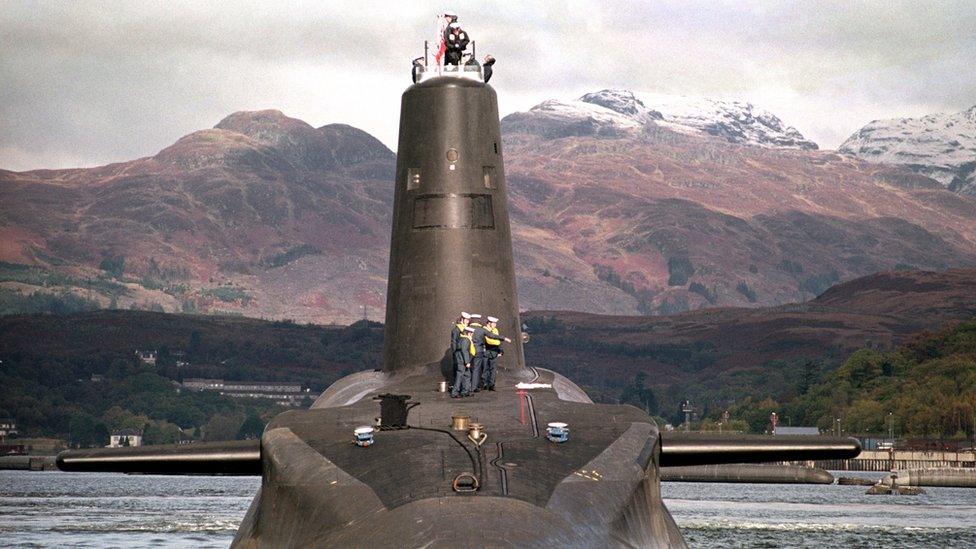David Cameron dismisses concerns over UK defence cuts
- Published
David Cameron said President Obama appreciated the UK's contribution
Prime Minister David Cameron has dismissed concerns raised by the head of the US Army about the impact of cuts on the UK's armed forces.
Chief of Staff General Raymond Odierno said he was "very concerned" about the falling proportion of the UK's national wealth being spent on the military.
Mr Cameron said the UK remained a "very strong and capable partner" for the US.
The Ministry of Defence has said the government is committed to spending 2% of GDP on defence.
Ministers are under pressure from Conservative MPs and the military to commit to meeting Nato's target of spending at least that figure on defence beyond 2016.
Britain currently just meets the 2% target, but the government is committed only to continuing that until the end of this Parliament.
UK contribution
General Odierno earlier said spending cuts could see British units operating within US ranks, rather than divisions working alongside each other.
But Mr Cameron insisted that US President Barack Obama appreciated the contribution made by UK troops who were able to fight alongside US forces "anywhere in the world".
Speaking at a campaign event in Colchester, the prime minister said the UK's defence budget was the fifth largest in the world and second only to the US in the Nato alliance.
"You can see that very specifically today in Iraq, where the second largest contributor in terms of air strikes and air patrols is Britain by a very large margin," he said.
"You have to add up several other countries to get to the scale of what we are doing, second after the Americans."
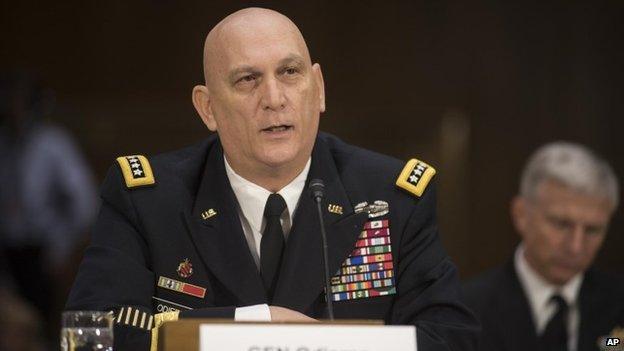
General Raymond Odierno says some British army brigades may have to work inside US ones in future
Mr Cameron also said the UK had "an incredible programme of equipment" that would see new aircraft carriers and new aircraft "in the coming years".
He said the government had promised that the equipment budget, which is £160bn over the next decade, will grow by 1% in each year of the next Parliament.
The British army is undergoing a 20% reduction in regular troop numbers, from 102,000 in 2010 to 82,000 in 2020.
This is to be accompanied by a rise in the number of reservists, from 24,000 to 30,000.
The Royal Navy and the RAF are both preparing to lose 5,000 regulars and gain 500 reservists over the same period.
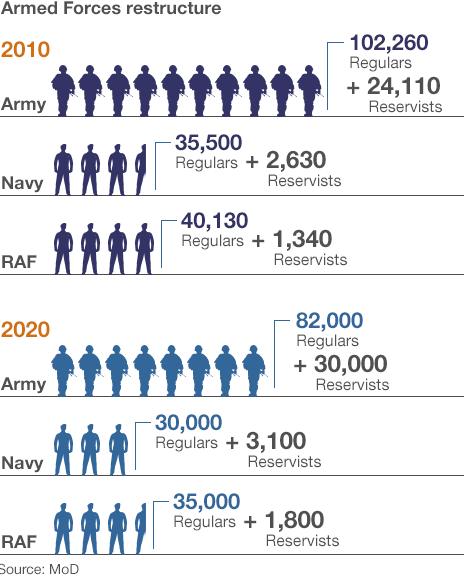
- Published2 March 2015
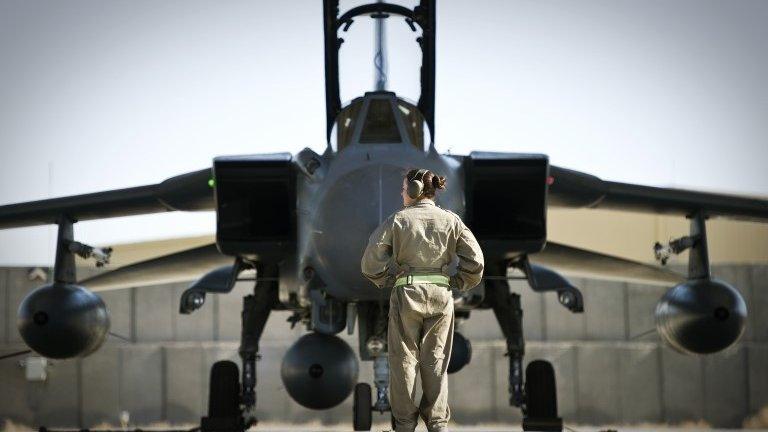
- Published26 February 2015
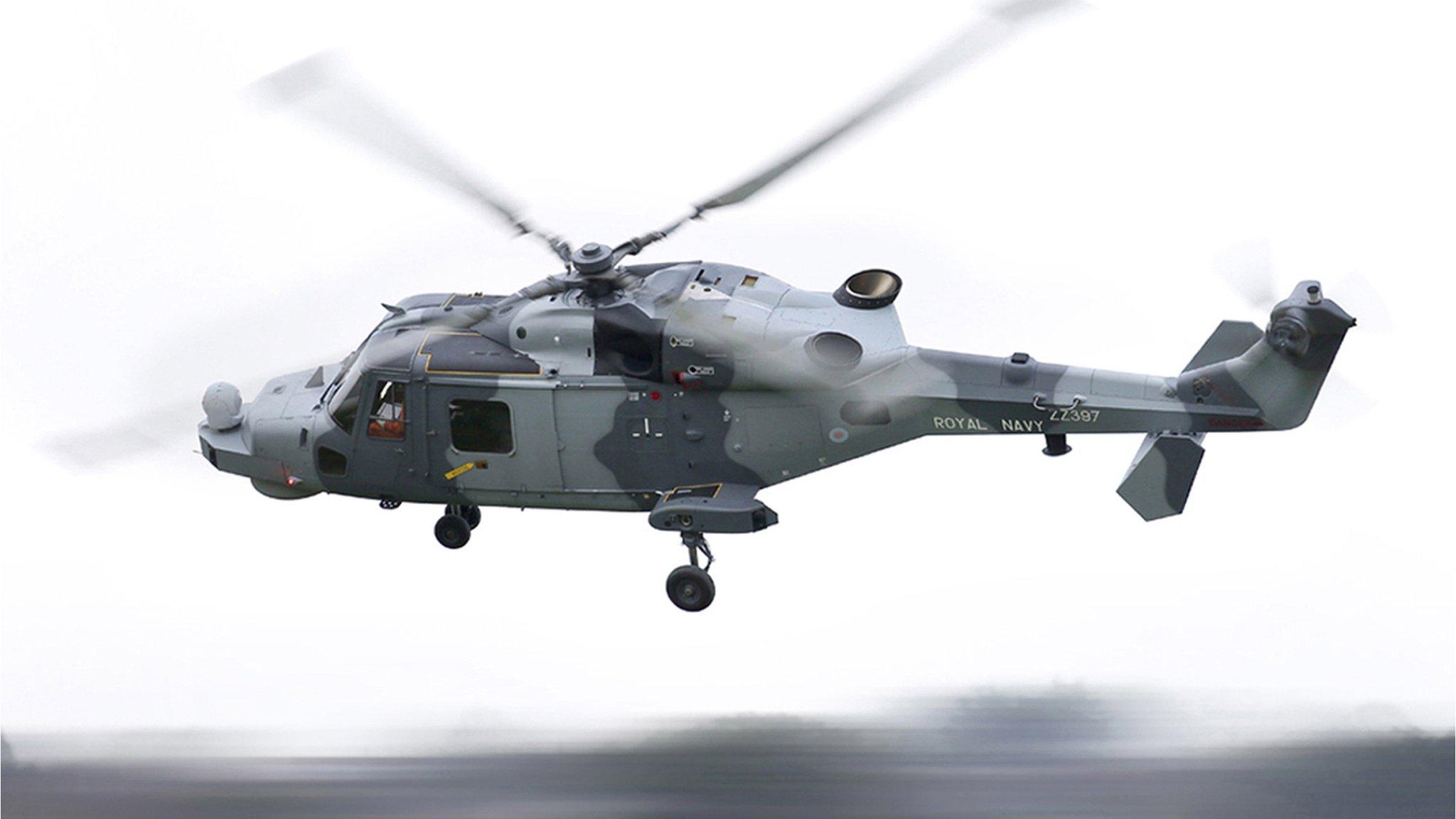
- Published24 February 2014
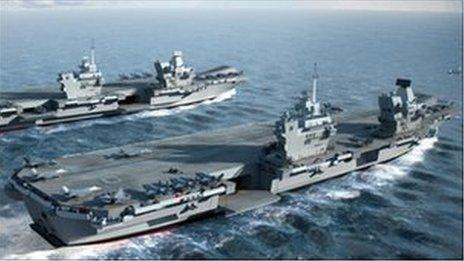
- Published27 March 2014
